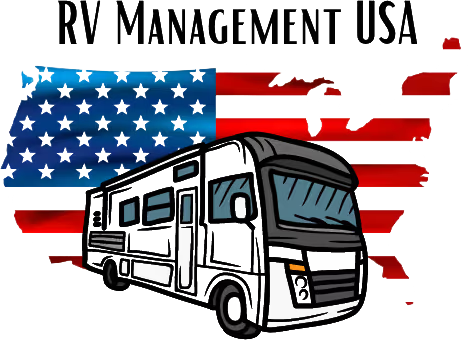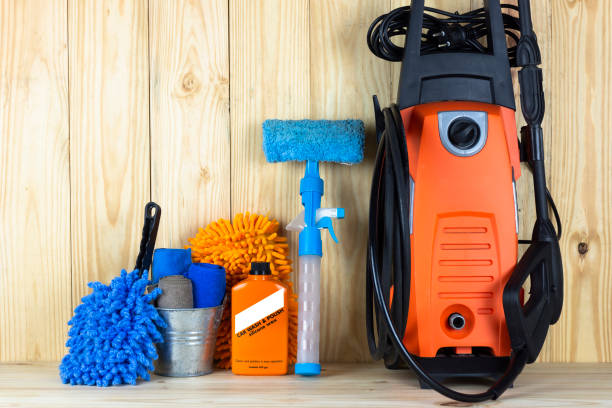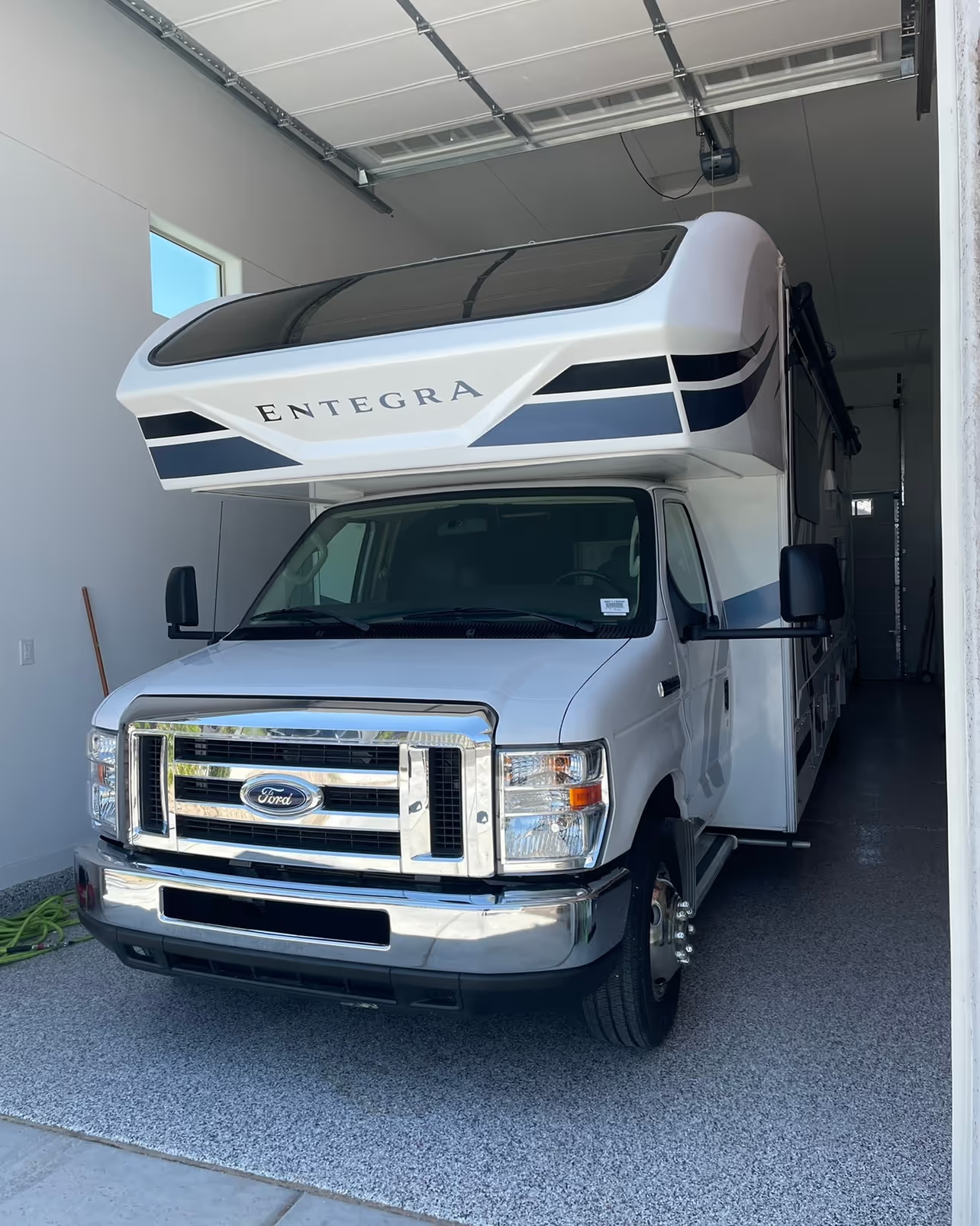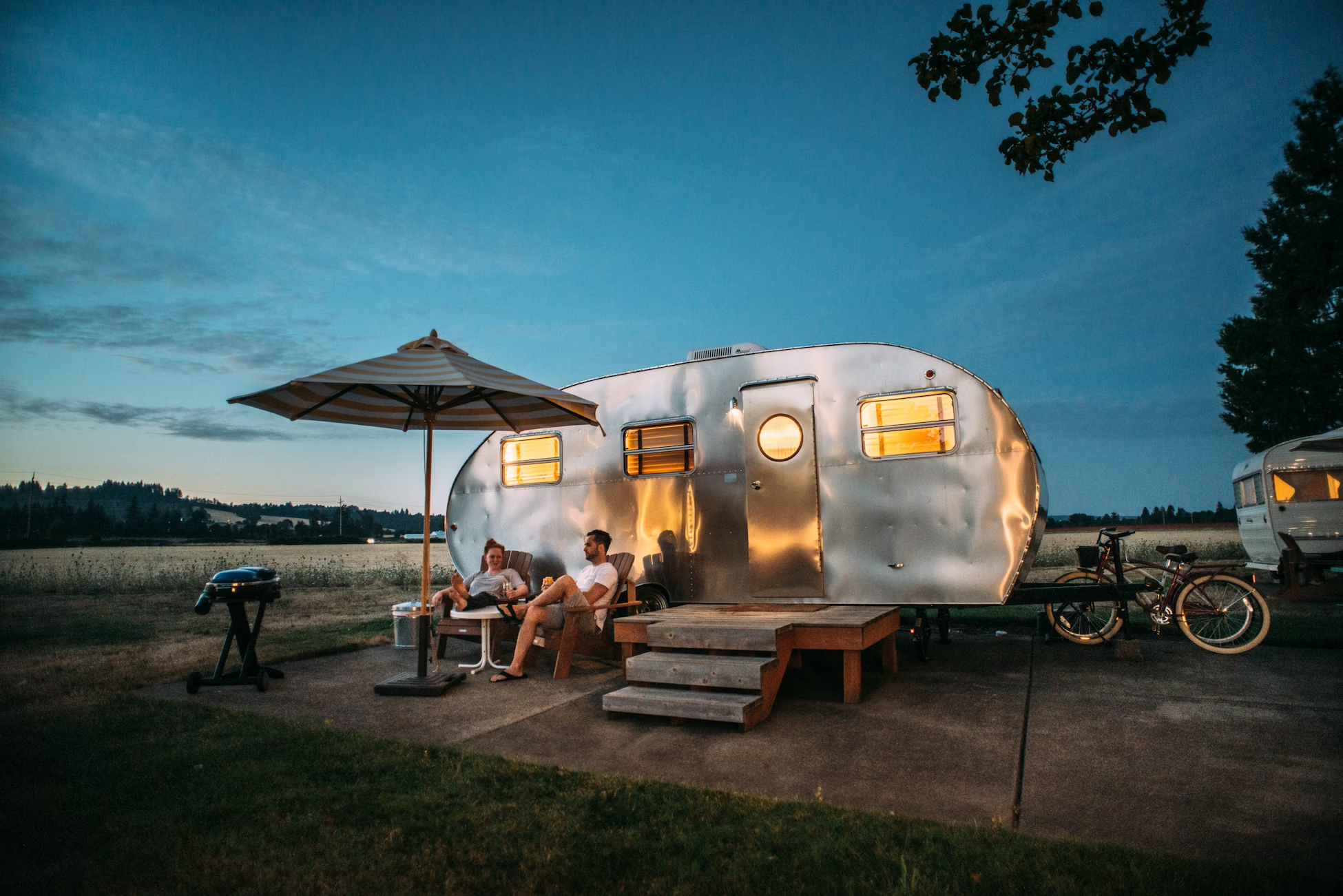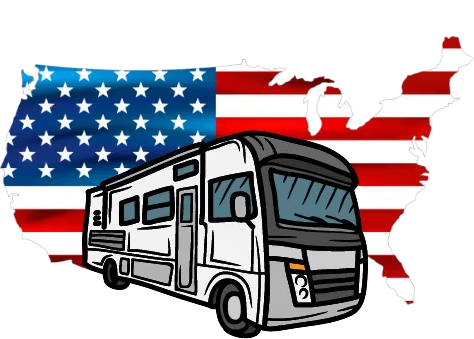If you’re getting into the RV rental game, one of the first big decisions you'll face is whether to invest in a new or used RV. Both routes can work. Both have trade-offs. And both can be highly profitable—if you know what to look for.
This guide breaks down the pros and cons of new vs. used RVs in the context of rental management, with a focus on maximizing return, minimizing stress, and protecting your long-term investment.
Whether you're an aspiring owner with a modest budget or a seasoned investor looking to expand your fleet, this article will help you make the smartest purchase for consistent, worry-free income.
Table of Contents
- The Rental Math: New vs. Used ROI Compared
- Pros of Buying a New RV for Rentals
- Pros of Buying a Used RV for Rentals
- Common Pitfalls with Older Units
- Ideal Age and Mileage Range for Used Rentals
- New vs. Used: Booking Performance
- Insurance & Depreciation Considerations
- Maintenance Costs and Repair Downtime
- Financing and Cash Flow Flexibility
- Final Thoughts
1. The Rental Math: New vs. Used ROI Compared
Before diving into the pros and cons, let’s look at some quick numbers.

Older RVs often have the best upfront ROI. But that doesn’t account for higher repair costs, downtime, or lower nightly rates—which we’ll explore below.
2. Pros of Buying a New RV for Rentals
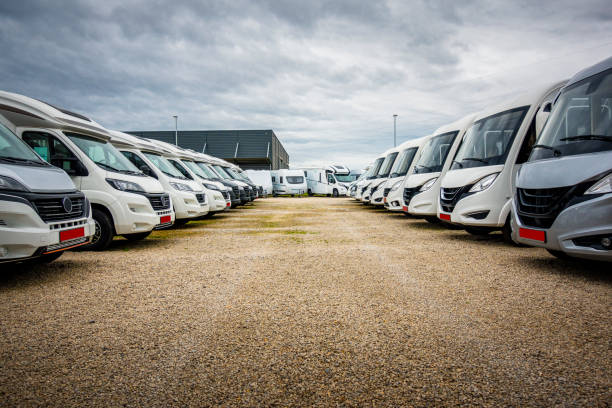
✅ Higher Guest Appeal
Guests love that “new RV smell.” Clean lines, modern interiors, and updated tech drive higher nightly rates and reviews.
✅ Lower Maintenance
You’ll see fewer mechanical issues in the first 12–24 months. That means less downtime and fewer emergency vendor calls.
✅ Better Fuel Efficiency & Systems
New models often come with improved MPG, solar-ready options, USB ports, upgraded AC, and Bluetooth—all of which increase guest satisfaction.
✅ Easier Insurance & Compliance
Commercial policies and platform listings (like Outdoorsy or RVshare) are easier to secure with newer rigs.
3. Pros of Buying a Used RV for Rentals
✅ Lower Upfront Investment
Lower capital required means faster ROI and more flexibility with cash flow. You can get a 2–4-year-old unit for 30–40% less than a new one.
✅ Depreciation Already Absorbed
Most depreciation happens in the first 2 years. With used units, you avoid that hit—and can often resell later at minimal loss.
✅ Ideal for Testing the Market
If you’re not 100% committed, starting with a used RV is a low-risk way to validate rental income in your region.
✅ Better for Budget-Conscious Guests
Some guests are less concerned with luxury and more with price. A clean, reliable used RV can outperform a luxury rig in many markets.
4. Common Pitfalls with Older Units
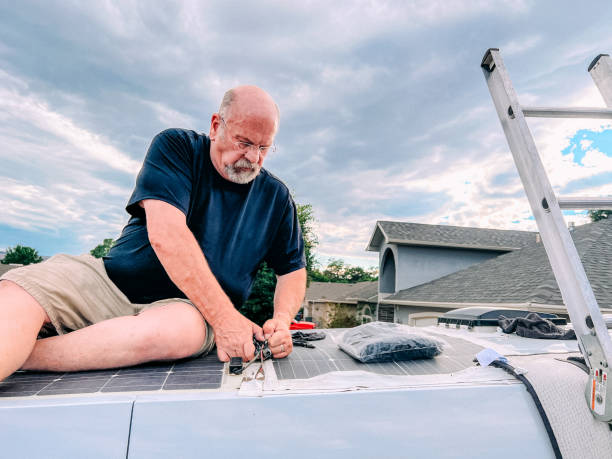
Used doesn’t mean bad—but age and condition matter.
Watch out for:
- Roof leaks or sealant cracks
- Outdated decor that deters renters
- Worn tires or suspension issues
- Malfunctioning appliances
- Soft floors or water damage
RVM recommends professional inspections before purchase—and budgeting $2,000–$5,000 for initial upgrades or retrofits.
5. Ideal Age and Mileage Range for Used Rentals
Here’s where used RVs hit the sweet spot:
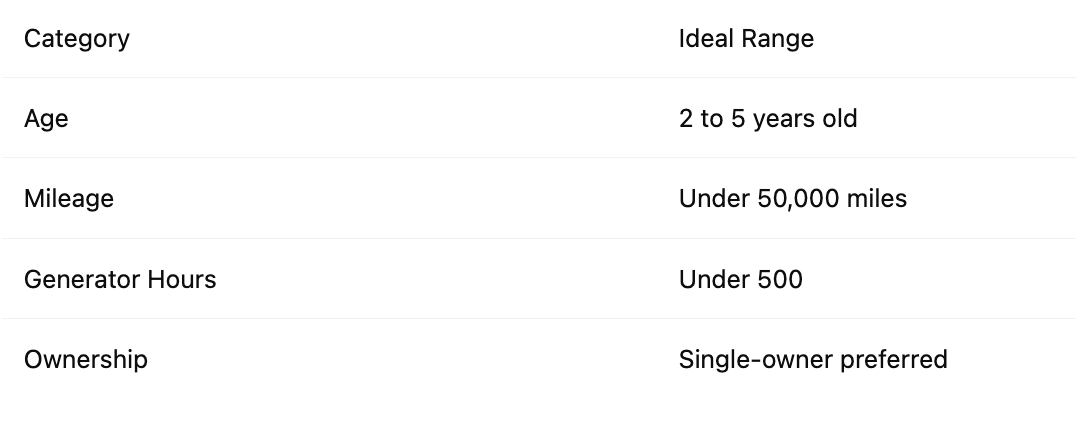
This range balances modern appeal with lower price, without veering into high-maintenance territory.
6. New vs. Used: Booking Performance

Newer RVs perform better out of the gate—but well-maintained used units with great photos and strong reviews can compete evenly.
7. Insurance & Depreciation Considerations
New RVs:
- Easy to insure under commercial policies
- Covered under warranty for most repairs
- Lose 20–30% of value in the first 2 years
Used RVs:
- May face higher premiums or exclusions
- May not qualify for some platform protections
- Hold value longer if well-kept and documented
To offset this, RVM recommends pairing used RVs with value-added upgrades: backup cameras, solar panels, or memory foam mattresses.
8. Maintenance Costs and Repair Downtime
Here’s where used RVs start to show their cost:

Every day in the shop = a day not earning. The trick? Stay ahead of repairs with RVM’s scheduled maintenance protocols.
9. Financing and Cash Flow Flexibility

New RVs are easier to finance with lower rates and longer terms—but they tie up more capital.
Used RVs may require higher interest or cash purchases, but allow for:
- Faster breakeven points
- Lower monthly obligations
- Easier exit if you choose to sell
If using a rental management company like RVM, either option can work—what matters most is ensuring your RV matches market demand.
10. Final Thoughts
There’s no one-size-fits-all answer to the new vs. used RV debate. But here’s the key:
If your goal is speed to ROI, go used—with strong vetting.
If your goal is long-term passive income with fewer headaches, go new—and pair it with professional management.
Either way, the right support system makes all the difference.
At RV Management USA, we help owners get the most from their RV—whether it’s fresh off the lot or already broken in. From selection to setup, we manage the heavy lifting so you can enjoy steady, passive income without second-guessing your decision.
– RVM Team
